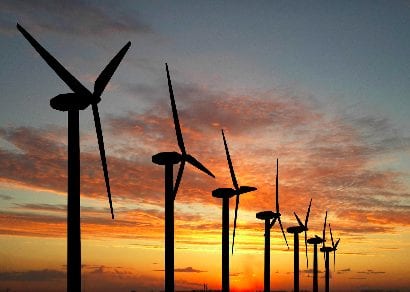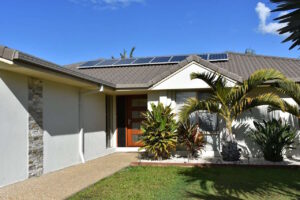Origin Energy boss Grant King says a reduction in Australia’s renewable energy target (RET) to a so-called “real” 20 per cent of total generation would likely push any new large scale renewable energy development out to beyond 2020.
In a press briefing following the release of the company’s interim results, King said there were still enough excess certificates in the system to delay investment until 2017, even with the current 41,000GWh target. The year 2017 is the timeframe that Origin Energy has in mind for its Stockyard Hill wind project in Victoria.
But he said that a real 20 per cent RET target – as pushed for by a number of groups, including his own company – would effectively defer any new build beyond 2020.

He also dismissed suggestions that the RET could be removed entirely, as has been suggested by various business lobby groups, some state owned generators, some government insiders and a circus of conservative commentators.
“I don’t believe it can (drop the RET entirely) otherwise it will strand a whole bunch of investment that people legitimately have made,” King said. “It is just not possible.” This is consistent with other views from market players who suggest such a move would cause a wave of legal action.
The solar industry, however, believes the Abbott government has already obtained legal advice on the potential of such action, so perhaps the complete removal, as some within its own government propose, is not off the cards.
King also dismissed claims reported in the Murdoch press by EnergyAustralia, another of the big 3 “Gentailers” in the Australian market, that the closure of the Pt Henry smelter in Victoria could lead to electricity blackouts in the state,
King said wholesale electricity markets would have to fall substantially for there to be no generation, particularly in Victoria where the marginal cost of generation for the brown coal generators is low. “If there is a cent in it, there will still be generation,” King said.
EnergyAustralia has a long history of making threats about power blackouts caused by carbon prices, renewable schemes, and even energy efficiency initiatives – all of which it sees as a threat to its earnings. But market participants, including King and former government advisor Ross Garnaut, point out that if some capacity is removed, then the market corrects itself and others move in to fill the gap.
Interestingly, King said that new demand from the large LNG production platforms in Queensland, one of which is being built by Origin Energy, will likely require an extra 1GW of electricity demand
King said this would more than offset the reduction of demand cause by the closure of Pt Henry and other smaller businesses, and car manufacturers. He said there was little likelihood of major consumers such as the Tomago and Portland smelters closing down.
He also said the fall in domestic demand was likely to moderate, because of fewer solar modules being added as subsidies were removed, and because of the population increase. That may create some interesting discussion about demand forecasts used to










